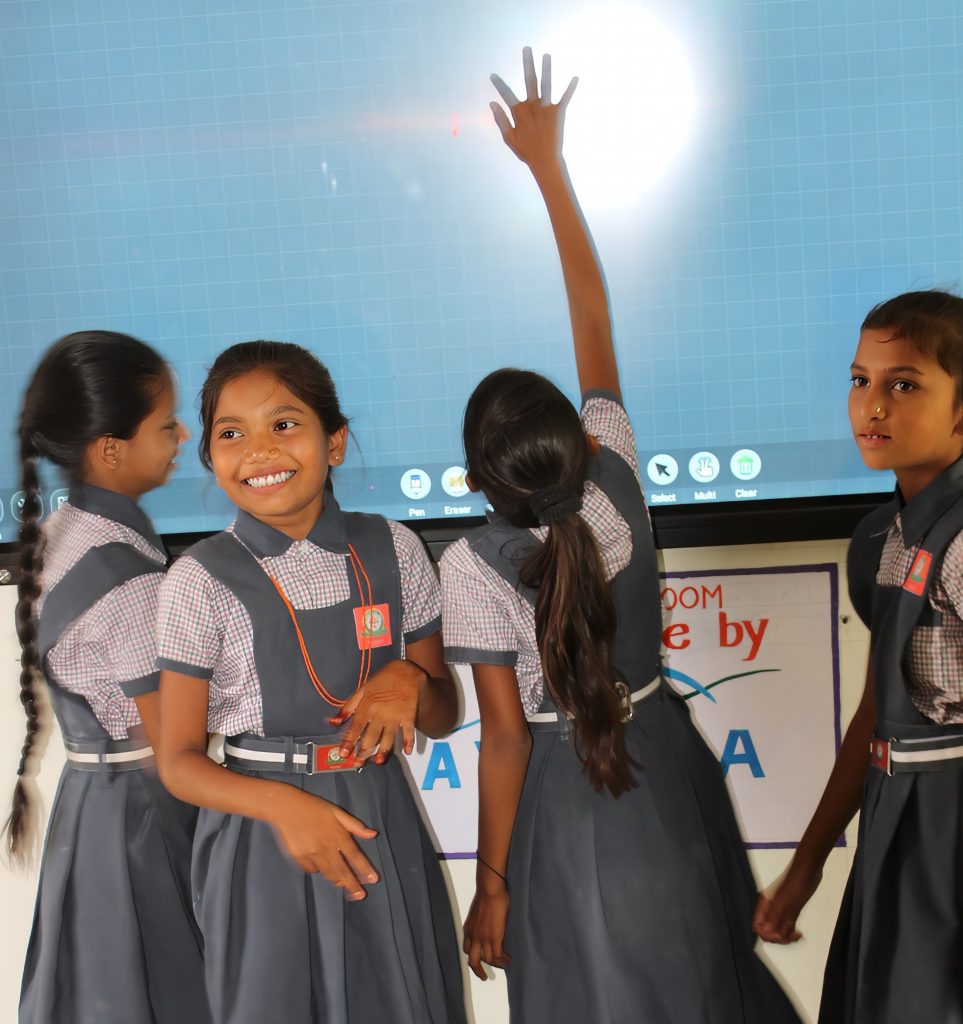

Education continues to be a critical concern across India. Apart from access to learning, several parts of the country lack awareness and understanding of its importance. No other factor truly impacts a nation’s growth than education. It uplifts economically underprivileged masses and helps them overcome various developmental issues. Avaada Foundation has initiated meaningful education programmes that enable the individual’s overall development. With a focus on child education, it implements interactive and engaging education methods for poor children. The main initiative – Mission Education – is committed to providing basic education to needy children. CSR Mandate speaks with Vineet Mittal, Chairperson, Avaada Energy, about how the company’s Foundation’s education initiatives have transformed the lives of its beneficiaries.
Why do you think it is important to focus on education in India?
Education is a fundamental human right and has the power to transform individuals and communities. Given that a significant part of the population (over 136 crores) consists of young individuals, a developing nation like ours must prioritise increased investment in education as an urgent requirement. By providing quality education, universally, the youth can be empowered with the knowledge and skills they need to achieve their full potential, regardless of their socioeconomic background. Education is also the key to reducing poverty, bettering lifestyles and promoting economic growth.
India is a developing nation with an abundant talent pool, and investing in education can help create a skilled workforce essential for driving innovation, boosting productivity and promoting economic development. It also provides opportunities for entrepreneurship and innovation and helps to create job opportunities.
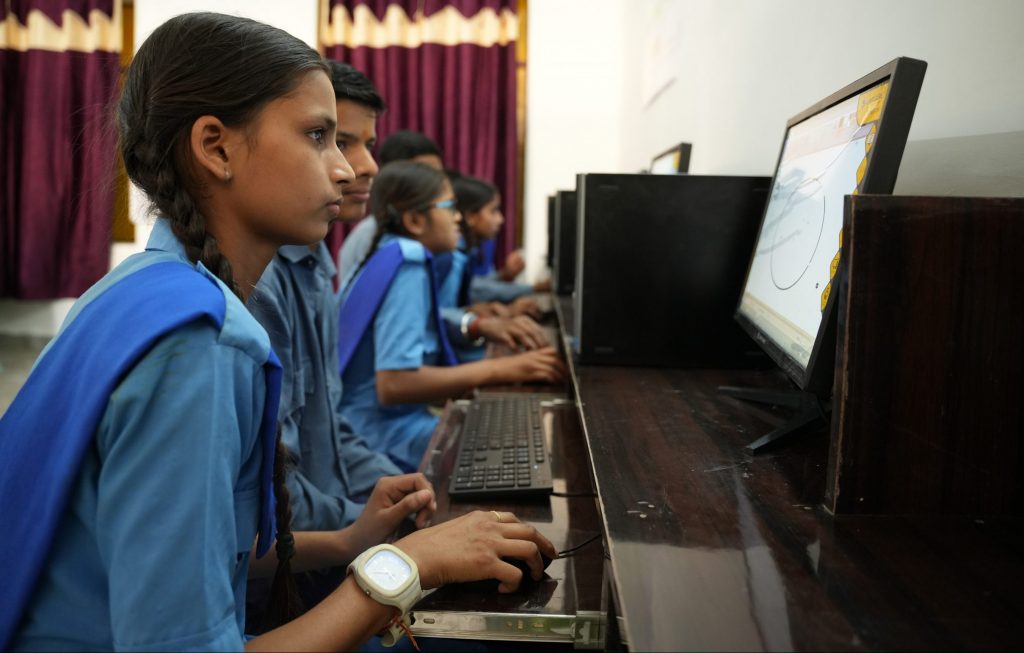
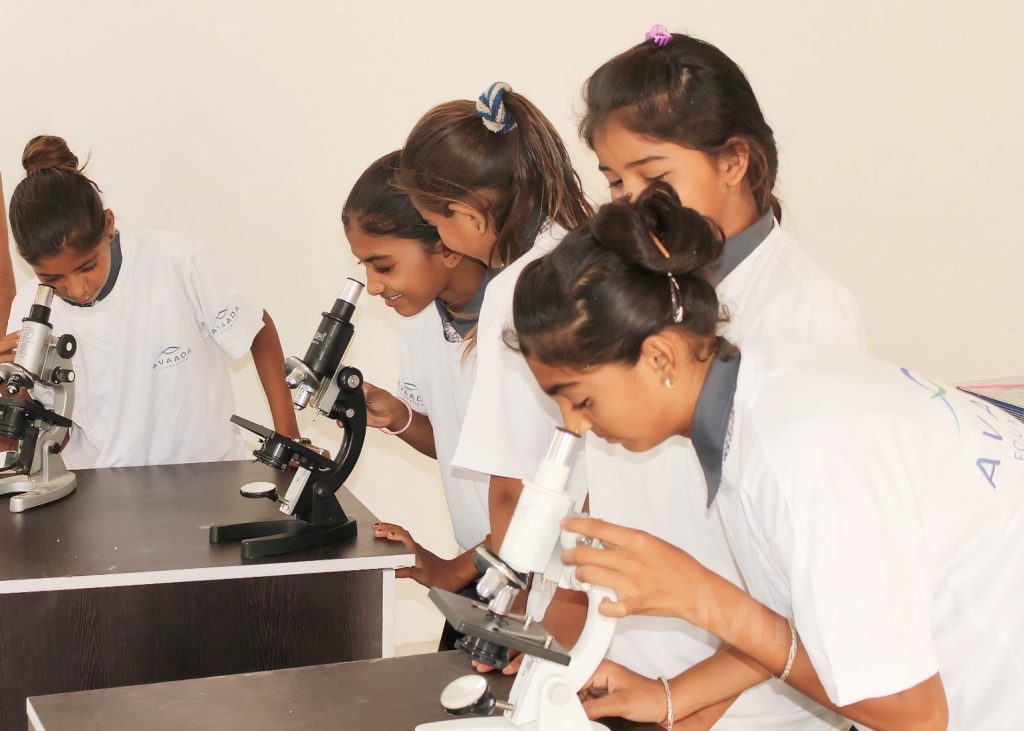
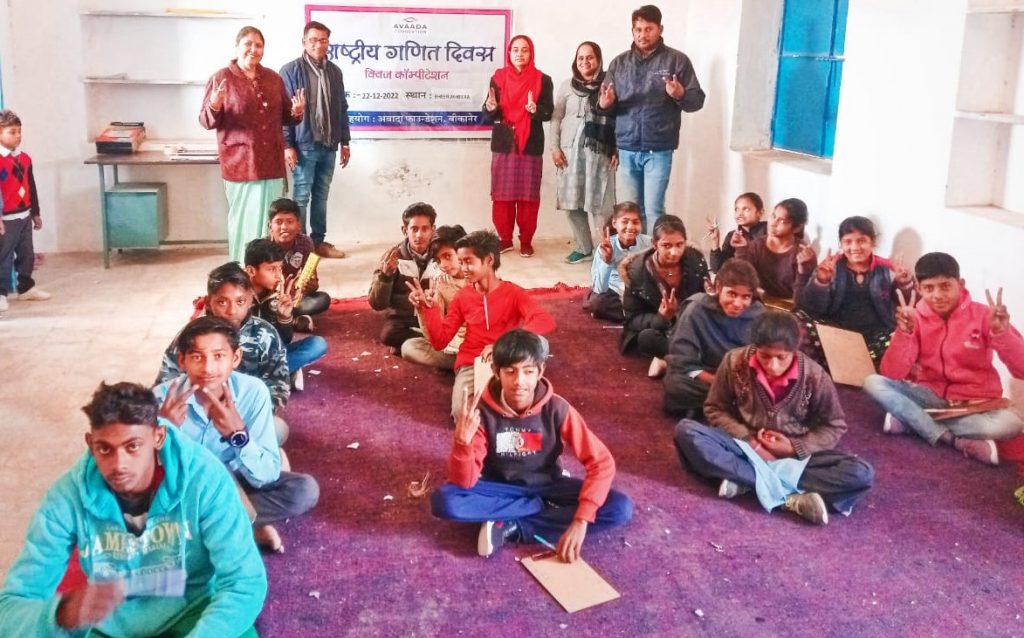
Education can foster social and cultural development, and by promoting cultural understanding, barriers are broken, diversity is promoted, and social cohesion is built. It can also help to promote gender equality, and social justice and empower individuals and communities to challenge discrimination and inequality.
Finally, education is essential for promoting environmental sustainability and building a greener future. By teaching sustainable practices and environmental stewardship, education can help to create a more sustainable future and mitigate the impacts of climate change. Therefore, focusing on education in India is a moral imperative and an economic, social and environmental necessity.
In the fast-changing world of digital transformation, academia, like other professions, is also going through an important transition. The curriculum taught in schools today might not be relevant for the jobs of the future. The challenge before us is – How do we prepare students for jobs that do not exist yet? The answer lies in transforming classrooms from content-delivery places to learning-oriented environments. In the schools of the future, teachers will be responsible to ignite young minds to think innovatively and accept challenges as growth opportunities.
There is a visible gap in the quality of education in the country. Do you feel India Inc. should shift its focus to bridging this gap through its CSR initiatives?
I believe India Inc. can play a huge role in bridging the gap in quality education in the country. By supporting initiatives that focus on improving the quality of education, we can create a skilled and competent workforce essential for the growth and prosperity of our nation. As responsible corporate citizens, we must invest in education and contribute to building a better future for all.
Given the vast pool of young talent, India can become the skill capital of the world. However, this talent must be turned into ways to generate revenue. This is where targeted efforts need to be put in not just by India Inc., but also by all stakeholders. Giving back should become a universal motto, and every individual, institution, and organisation needs to do whatever it can to ensure the right education reaches the right person.
Specialised and vocational training should be given more focus going forward so that our population can be turned into human capital. Thanks to NEP 2020, a key step has been taken in this regard. All we require now are stronger policies and better implementation to ensure we provide quality education universally.
Education is one of the key focus areas of our Group’s CSR policy, and we support initiatives that aim to improve the quality of education in the country. Moreover, we leverage technology to improve the reach and quality of education. For example, we support eLearning initiatives and provide access to digital resources to enhance the learning experience.
What are some of Avaada Foundation’s key areas of focus? How did you decide to work in these social sectors?
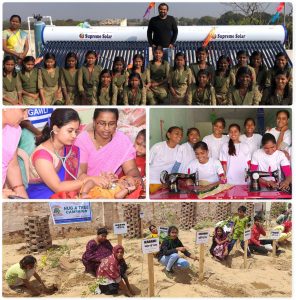 We are engaged in social welfare activities, with a significant focus on education, medical facilities in rural areas, women empowerment through skill development, environment, and rural electrification, among others. We have implemented these initiatives directly and collaborate and liaise with the Government, local authorities and rural administrative bodies. We are presently working across 11 States, covering more than 40 districts and serving more than 100 villages across India.
We are engaged in social welfare activities, with a significant focus on education, medical facilities in rural areas, women empowerment through skill development, environment, and rural electrification, among others. We have implemented these initiatives directly and collaborate and liaise with the Government, local authorities and rural administrative bodies. We are presently working across 11 States, covering more than 40 districts and serving more than 100 villages across India.
Our purpose and values matter a lot to the people and communities we serve, and we must consider ourselves fortunate to be able to serve them selflessly.
Our larger vision is to meet the UN Sustainable Development Goals, and we have put down objectives to meet these goals and foster overall development and upliftment of the society as listed in Schedule VIII of Section 135 of the Companies Act through a detailed and focused action plan.
What was the vision behind Utkrisht Shiksha Abhiyan?
We launched a unique initiative, Utkrisht Shiksha Abhiyan, to promote value-based education among the youth and share innovative methodologies with the teachers to transform lives. The objective is to bring about long-term societal development by introducing value-based education programmes for students’ spiritual, moral, social and cultural development.
In the fast-changing world of digital transformation, academia, like other professions, is also going through an important transition. The curriculum taught in schools today might not be relevant for the jobs of the future. The challenge before us is – How do we prepare students for jobs that do not exist yet?
The answer lies in transforming classrooms from content-delivery places to learning-oriented environments. In the schools of the future, teachers will be responsible for igniting young minds to think innovatively and accept challenges as growth opportunities.
Infrastructure support for schools, such as renovation and construction of classroom seating arrangements, providing toilets, libraries, drinking water facilities, sports equipment, science labs, smart classes, etc., has come a long way in providing a healthy environment for the children to study. We provided quality and innovative education with smart classes on laptops, computers, and smart TVs in classrooms and science labs in the schools. In addition to providing core academic support and bolstering government schemes such as Sarva Shiksha Abhiyan and the Mid-Day Meal programme, appointing Shiksha Karmis (Education Volunteers), we place special emphasis on promoting girls’ education.
Share the educational initiatives undertaken through the Utkrisht Shiksha Abhiyan programme.
Utkrishta Shiksha Abhiyan is a research and evidence-based programme curated to maximise learning. It is a blend of ancient wisdom, neurosciences, and modern research and is delivered using experiential activities to empower the youth to live happy and successful lives.
Under this initiative, we have ‘Be a Champion’ and ‘Teaching to Transform Lives’.
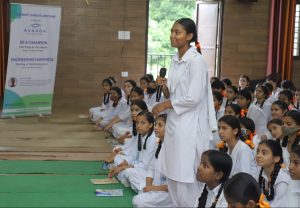 ‘Be the Champion’ provides a value-based approach to education and uses positive values to create a strong learning environment. The students learn to lead a life with a positive vision, handle peer pressure, realise self-esteem and gain self-confidence.
‘Be the Champion’ provides a value-based approach to education and uses positive values to create a strong learning environment. The students learn to lead a life with a positive vision, handle peer pressure, realise self-esteem and gain self-confidence.
Overall, it teaches you how to be good, successful and happy humans. Students feel empowered and safe to learn and participate in a culturally responsive environment. They feel included in their school community as that is where they develop a sense of pride and self-esteem.
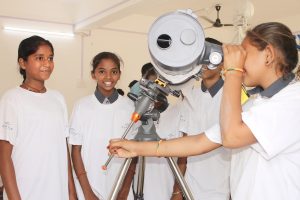 The ‘Teaching to Transform Life’ programme is a combination of principles from neurosciences, modern research, ancient wisdom and experiential learning. It offers ideas to become an academic leader and the transformer of life.
The ‘Teaching to Transform Life’ programme is a combination of principles from neurosciences, modern research, ancient wisdom and experiential learning. It offers ideas to become an academic leader and the transformer of life.
We held the programme in 11 government and private schools in Rishikesh, Uttarakhand; GLA 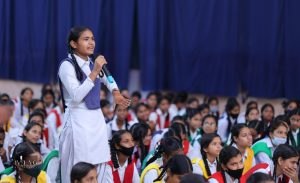 University (the largest private university in Uttar Pradesh) in Mathura and Rae Bareli, Uttar Pradesh.
University (the largest private university in Uttar Pradesh) in Mathura and Rae Bareli, Uttar Pradesh.
We organised a slew of activities for the students to help them become more confident and talk about their issues openly without fear. We hope many more students and teachers will participate in this transformative programme to enhance their learning and teaching experiences.
Lives Touched
Rishikesh – Over 4,000 students and 150 teachers
GLA University – Over 500 students and 100 teachers
Rae Bareli – Over 1000 students and 150 teachers
What have you accomplished through these programmes and what do you hope to accomplish in the future?
Our initiatives have aided 35,000 people in education, where we have instilled a true sense of their identity and confidence through a careful blend of knowledge, skills and social responsibility. We hope to educate, empower, enhance the quality of life, and energise and enlighten the community, socially and economically, to fulfil their dreams. We hope to achieve this through quality and innovative education and provide a healthy environment and community support that will positively impact the lives of the children, boost confidence and help them build stronger futures for themselves.
How did you zero in on the schools? What was the need you observed that required your immediate intervention?
In the regions where we initiated our project activities, we conducted need-based surveys to assess the basic requirements of the schools, including social and physical infrastructure facilities and level of quality education, including drinking water and toilets facilities, library, sports equipment and facilities, science lab, eLearning classes, computer, smart classes, etc. We held meetings with the school administration, principals, teachers and students in focused group discussions, and informal discussions with the village heads.
Based on assessments and stakeholders’ consultations, we found that schools in rural India often face a range of challenges, such as inadequate infrastructure – dilapidated classrooms and playgrounds, toilets, poor drinking water facilities, lack of qualified teachers, insufficient teaching materials, low attendance rates, and high dropout rates. These challenges can significantly impact the quality of education and the opportunities available to students. Such deficiencies can create unsafe and uncomfortable learning environments that discourage students from attending school regularly.
Providing core academic help is just one of the many aspects of education to improve student outcomes. What are the other interventions and infrastructural aid you extended to the schools in need?
Infrastructure support for schools, such as renovation and construction of classroom seating arrangements, providing toilets, libraries, drinking water facilities, sports equipment, science labs, smart classes, etc., has come a long way in providing a healthy environment for the children to study. We provided quality and innovative education with smart classes on laptops, computers, and smart TVs in classrooms and science labs in the schools.
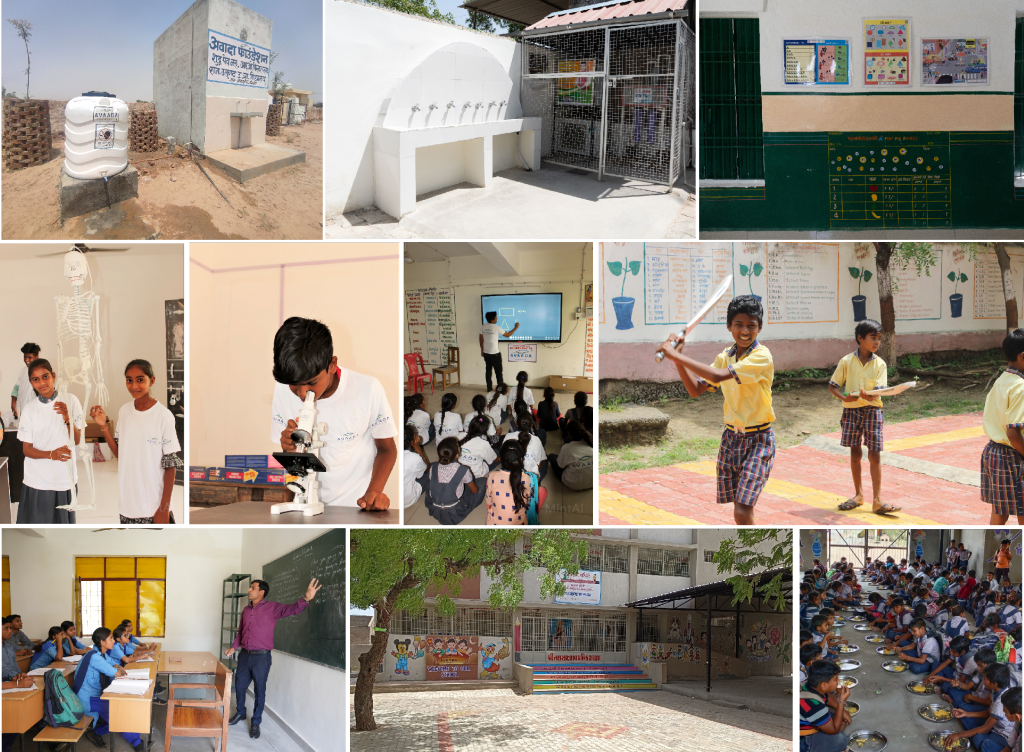
In addition to providing core academic support and bolstering government schemes such as Sarva Shiksha Abhiyan and the Mid-Day Meal programme, appointing Shiksha Karmis (Education Volunteers), we place special emphasis on promoting girls’ education.
Do share some inspiring testimonials from the CSR initiatives you have undertaken in the country.
Our journey has been full of triumphs. We count our success stories as testimonies, full of hope and courage rather than accomplishments. We are mere intermediaries who aid the recipients.
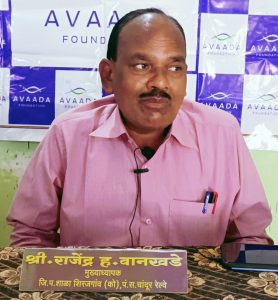 I want to share one success story from Amravati, Maharashtra. Zilla Parishad Upper Primary Marathi School and Shirajgaon Korde School in the region hardly had any facilities. The principal was personally funding essential facilities out of his own pocket.
I want to share one success story from Amravati, Maharashtra. Zilla Parishad Upper Primary Marathi School and Shirajgaon Korde School in the region hardly had any facilities. The principal was personally funding essential facilities out of his own pocket.
Our CSR team visited the school and formulated a plan to build infrastructure and provide educational support for the school. In a year, the dropout rate decreased, and it won the Rainbow School Award, one of only three schools in the entire Amravati district to do so.

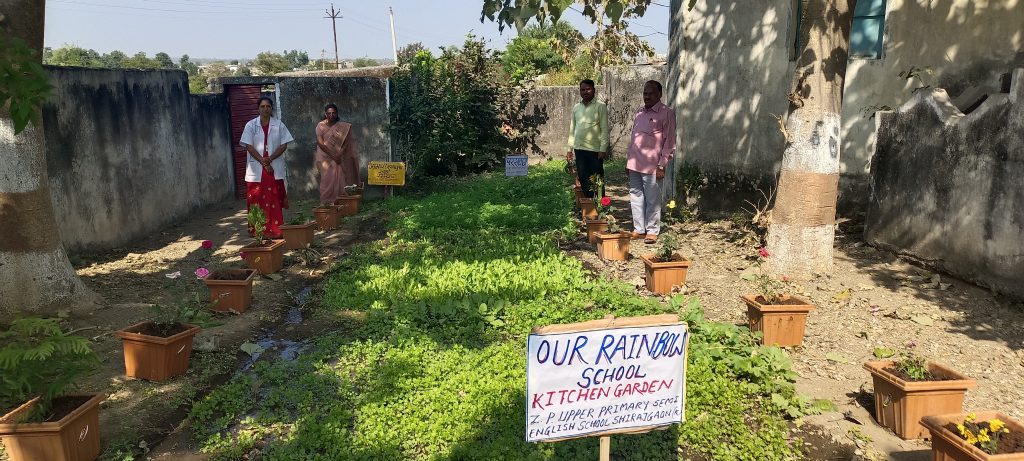
One of the positive impacts of our intervention is our digital learning initiative. We strongly believe in the power of visualisation through digital learning, which helps students tremendously in their daily academic lives. The impact was evident; we saw better attention span and attendance in the classroom, leading to improved results.
Through Utkrishta Shiksha Abhiyaan, we have gained some interesting insights. The principal of Bharat Mandir School and Saraswati Shishu Vidya Mandir, Rishikesh, has an innovative and unique method of imparting teaching methodology, and the teachers and students were motivated by this programme as it enhanced their skills.
Vice Chancellor Anoop Gupta of GLA University also expressed his views on the Utkrishta Shiksha Abhiyaan, emphasising its significance as the beginning of a remarkable journey. He highlighted the programme’s objective to provide quality education by prioritising innovation and creativity and fostering a new teaching methodology among educators.
Apart from the various educational enhancement initiatives discussed above, do you also help students who want to pursue higher education?
Overall, supporting students in higher education requires a holistic approach that includes their academic, financial, and career goals. By offering guidance, support, and resources, we are helping students succeed in college and beyond.
Digital learning, like any other approach, comes with its own set of advantages and disadvantages, making it a widely debated topic. On the positive side, students now have instant access to a vast amount of information, and the world is becoming more interconnected than ever before. With a wide range of digital learning solutions available 24/7, students enjoy the freedom to study at their convenience and engage with a global learning community, sharing knowledge with individuals from diverse countries and cultures. However, it is becoming increasingly challenging to distinguish between what is genuine and what is not. Issues such as network connectivity problems, excessive screen time, and limited access to devices or internet connections are among the challenges faced. Despite these challenges, the educational landscape is evolving, and it is encouraging to witness our adaptation to new learning methods.
What are the other community initiatives the Foundation is involved in?
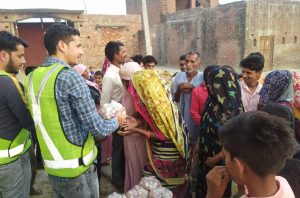 Our 360° inclusivity model provides clean energy and improved opportunities for rural India through education, livelihood skills and community involvement. During the pandemic, we carried out several relief efforts, including food distribution and medical supplies across our communities.
Our 360° inclusivity model provides clean energy and improved opportunities for rural India through education, livelihood skills and community involvement. During the pandemic, we carried out several relief efforts, including food distribution and medical supplies across our communities.
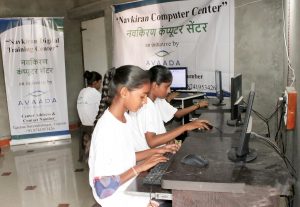 We encourage the community to enhance their vocational skills and empower themselves in accessing information, thereby building their capacity. Empowerment is one of our major focus areas. To empower and uplift the community’s skill level, we have set up the Nav Kiran Stitching and Nav Kiran Digital Literacy Centre, where women and youth are empowered and digitalised under the Skill India
We encourage the community to enhance their vocational skills and empower themselves in accessing information, thereby building their capacity. Empowerment is one of our major focus areas. To empower and uplift the community’s skill level, we have set up the Nav Kiran Stitching and Nav Kiran Digital Literacy Centre, where women and youth are empowered and digitalised under the Skill India 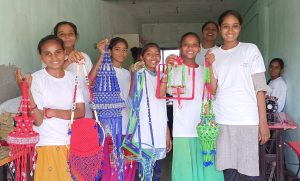 programme.
programme.
We initiated a ‘Vocal for Local’ campaign, where decorative and other handmade items are crafted in skill centres to empower and enhance livelihoods through employment generation for local women. These items are showcased at various organised exhibitions. We distribute the funds generated from these stalls back to these rural women.
How long has Avaada Foundation been involved in all these initiatives? What is the impact thus far?
Avaada Foundation was registered under Section 8 of the Companies Act 2013 on May 18, 2018. After its incorporation, we have been working tirelessly for the development of the community on many levels. In the field of education, we have taken several initiatives like Utkrishta Shisha Abhiyan, promoting girls’ education, education for all, youth education, bolstering government schemes, aiding appointment of Shiksha Mitra/Karmi under the ‘Train the Teacher’ programme, innovative teaching and learning methods such as digital literacy/smart classes/eLearning programmes, science labs in schools, exposure visits, etc. Our initiatives have directly and indirectly impacted lakhs of students across India.
Impact of Initiatives
|
The pandemic has demonstrated the advantages and disadvantages of digital learning. What are your thoughts on the matter?
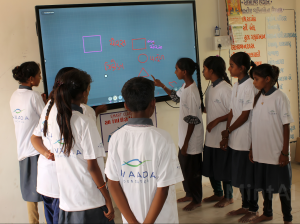 Digital learning, like any other approach, comes with its own set of advantages and disadvantages, making it a widely debated topic. On the positive side, students now have instant access to a vast amount of information, and the world is becoming more interconnected than ever before. With a wide range of digital learning solutions available 24/7, students enjoy the freedom to study at their convenience
Digital learning, like any other approach, comes with its own set of advantages and disadvantages, making it a widely debated topic. On the positive side, students now have instant access to a vast amount of information, and the world is becoming more interconnected than ever before. With a wide range of digital learning solutions available 24/7, students enjoy the freedom to study at their convenience  and engage with a global learning community, sharing knowledge with individuals from diverse countries and cultures. However, it is becoming increasingly challenging to distinguish between what is genuine and what is not. Issues such as network connectivity problems, excessive screen time, and limited access to devices or internet connections are among the challenges faced. Despite these challenges, the educational landscape is evolving, and it is encouraging to witness our adaptation to new learning methods.
and engage with a global learning community, sharing knowledge with individuals from diverse countries and cultures. However, it is becoming increasingly challenging to distinguish between what is genuine and what is not. Issues such as network connectivity problems, excessive screen time, and limited access to devices or internet connections are among the challenges faced. Despite these challenges, the educational landscape is evolving, and it is encouraging to witness our adaptation to new learning methods.
Should the Indian Government increase the mandatory percentage of CSR investment?
It is important to note that the effectiveness of CSR activities depends on the amount of funds and the quality and impact of the initiatives undertaken. Therefore, it is essential to ensure that funds are utilised responsibly and effectively, regardless of the percentage of mandatory investment.
Ultimately, the decision to increase the mandatory percentage of CSR investment lies with the Government, and it should be based on a comprehensive assessment of the potential benefits and drawbacks of such a move.
Do you think corporate-government collaboration is required for CSR activities to be successful?
I fully agree that corporate-government collaboration is essential for the success of CSR activities. Corporations have a significant role in addressing social and environmental challenges through their initiatives. However, it is equally important for government policies and regulations to create an enabling environment that supports and encourages such efforts.
What are Avaada Foundation’s plans for CSR beyond 2023?
 CSR is not an obligation but an opportunity to create shared value for the business and society. Our approach focuses on relevant and impactful initiatives, taking long-term perspectives rather than short-term gains, measuring and reporting impact using relevant metrics and standards like Social Returns on Investment (SROI) that can help in evaluating the effectiveness of the initiatives and identifying areas for improvement, and collaborating with stakeholders including the Government, NGOs, and other businesses to achieve common goals and maximise impact. As corporate citizens, we can positively impact society while creating value for the business.
CSR is not an obligation but an opportunity to create shared value for the business and society. Our approach focuses on relevant and impactful initiatives, taking long-term perspectives rather than short-term gains, measuring and reporting impact using relevant metrics and standards like Social Returns on Investment (SROI) that can help in evaluating the effectiveness of the initiatives and identifying areas for improvement, and collaborating with stakeholders including the Government, NGOs, and other businesses to achieve common goals and maximise impact. As corporate citizens, we can positively impact society while creating value for the business.

